CUEB Holds the 21st Conference on Financial Systems Engineering and Risk Management and the 7th re-election meeting for the Financial Systems Engineering Committee
From November 30 to December 1, the 21st Conference on Financial Systems Engineering and Risk Management, as well as 7th re-election meeting for the Financial Systems Engineering Committee, was hosted by the Financial Systems Engineering Committee of theSystems Engineering Society of China and CUEB, organized by the School of Finance, and co-organized by the Innovation and Talent Base for Financial Technology and Financial Econometrics, the Financial Economics Committee of the China Economics Annual Conference, the Institute of Beijing Digital Economy Development, and RESSET. Over 600 domestic experts and scholars attended the conference themed “Financial Innovation and High-Quality Development under the Background of Digital-Real Economy Integration”, with 5 report meetings, 34 invited reports, 60 parallel sub-forums, and 240 presented papers.
On the morning of November 30, the forum was held at the Zhuoyu Auditorium. Wu Weixing, Deputy Party Secretary and President of CUEB; Yang Xiaoguang, Chairman of the Systems Engineering Society of China and Xiong Xiong, Director of the Financial Systems Engineering Committee of the Systems Engineering Society of China, attended the opening ceremony and delivered speeches. Yin Zhichao, member of Party Standing Committee and Vice President of CUEB, presided over the opening ceremony.
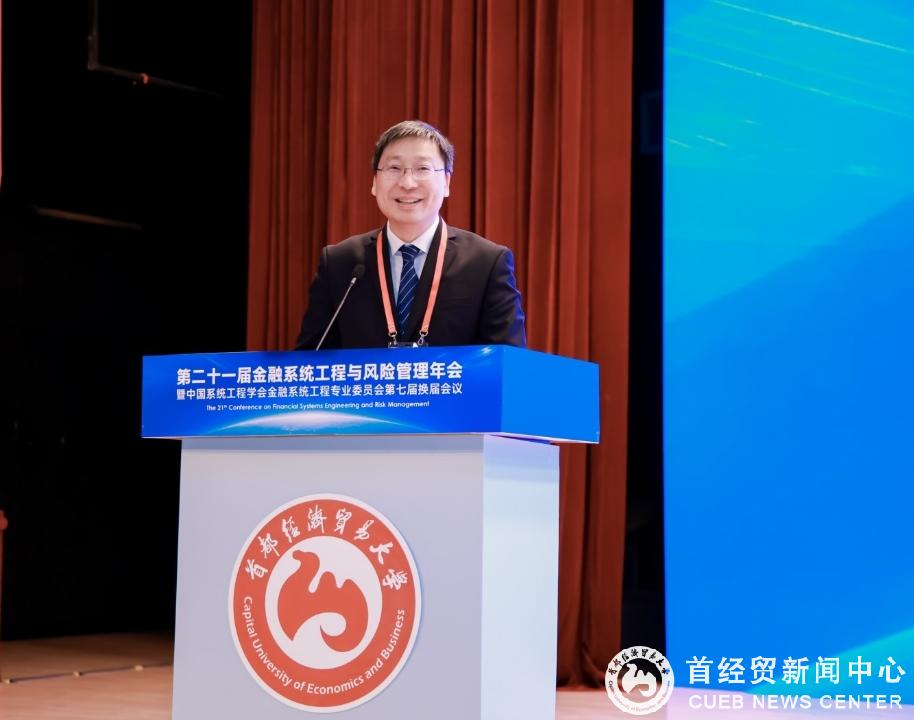
Professor Wu Weixing delivers a speech.
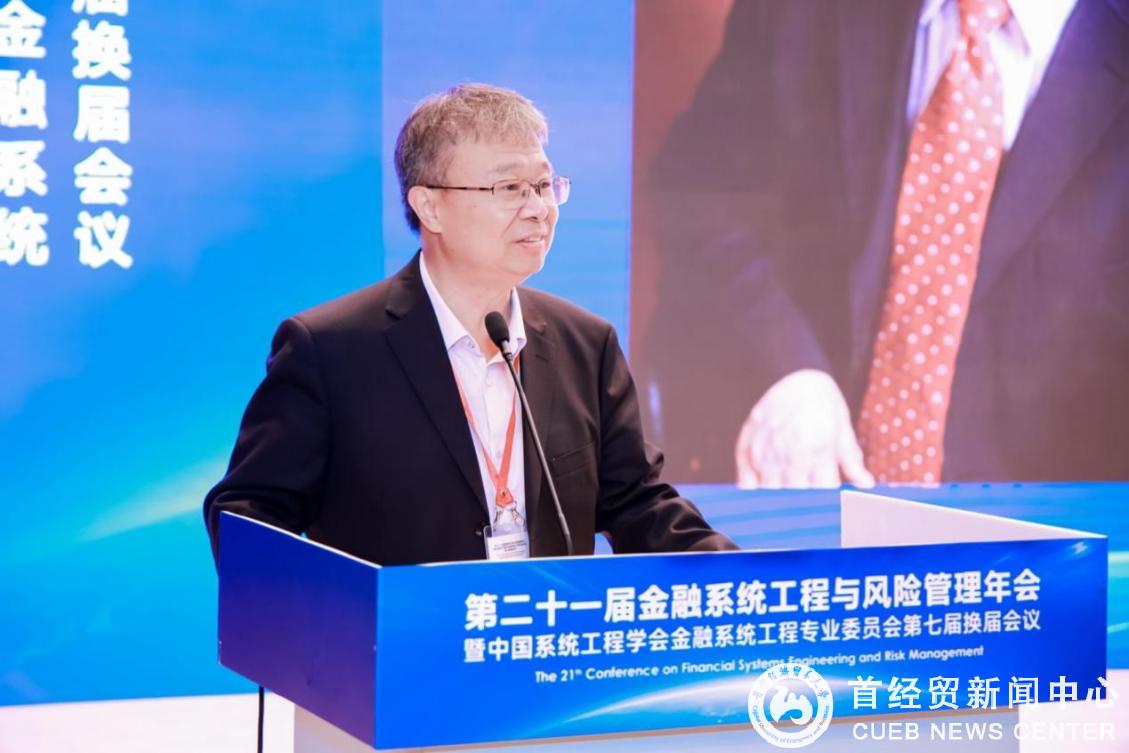
Researcher Yang Xiaoguang delivers a speech.
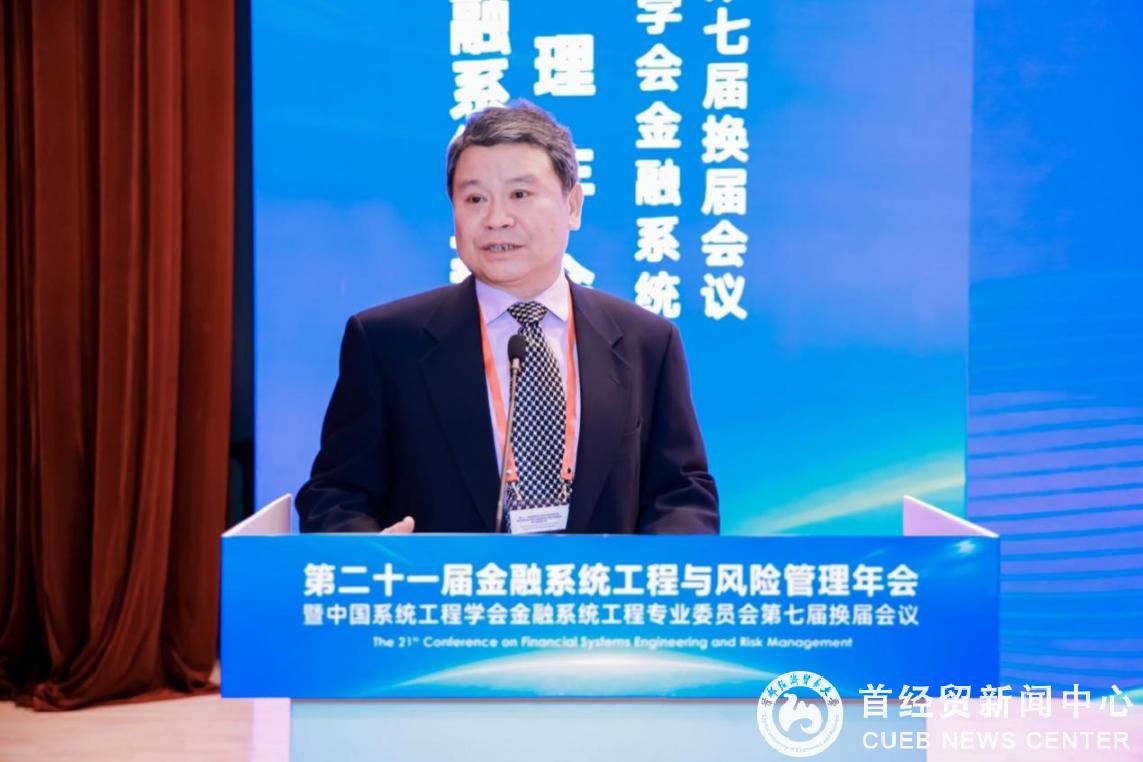
Professor Xiong Xiong delivers a speech

Professor Yin Zhichao presides over the conference
In the report session, Researcher Yang Xiaoguang, from the Academy of Mathematics and Systems Science; Professor Wang Neng, from Columbia Business School; Professor Tian Xuan, from Tsinghua University PBC School of Finance, and Professor Yin Zhichao, delivered keynote speeches respectively.
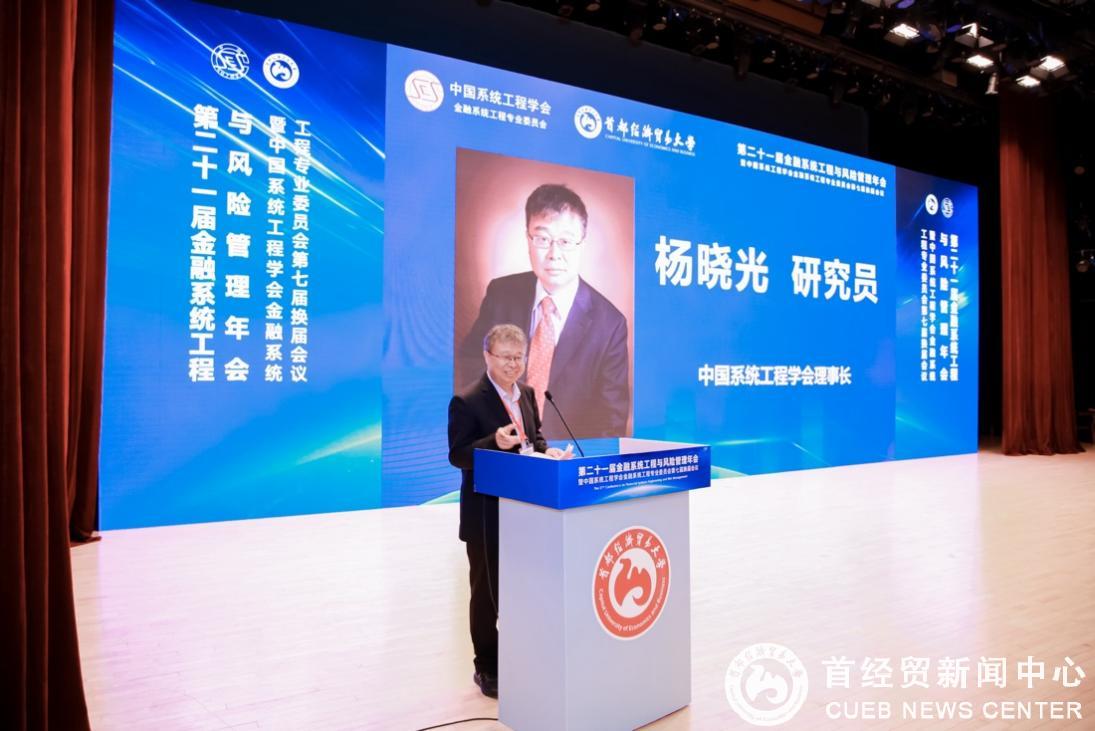
Researcher Yang Xiaoguang delivers a keynote speech
Yang Xiaoguang delivered a report titled “Cultivation of High-End Financial Personnel under the Background of Major Changes”. He remarked that China is facing a major change unseen in a century, and digital intelligence technology is empowering the financial industry. He stressed the importance of grasping the trends in Chinese society for successful financial practices and highlighted that a robust financial sector is crucial for risk prevention. He also emphasized the need to nurture quality personnel in finance in the new era, outlining five key training directions that offer insightful strategic considerations for the industry’s future growth.
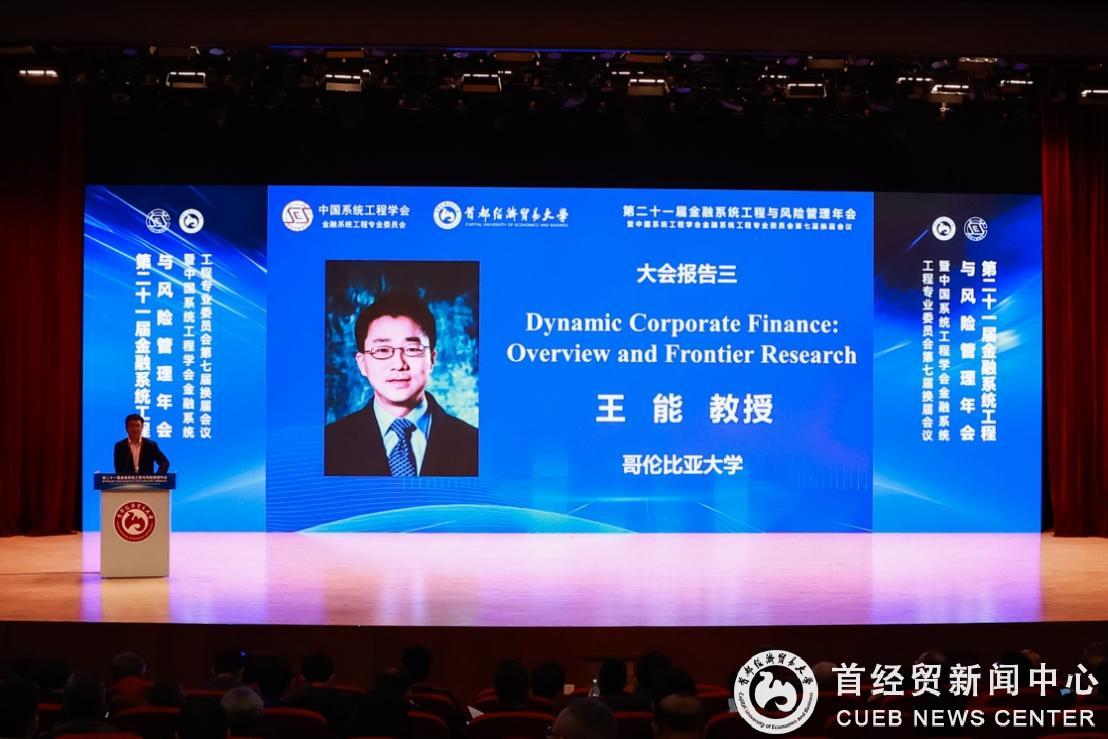
Professor Wang Neng delivers a keynote speech
Wang Neng presented a report titled “Dynamic Corporate Finance: Overview and Frontier Research”, using Apple’s balance sheet as a case study to illustrate the evolution of corporate finance. He also discussed the core aspects of dynamic corporate finance, particularly the importance of financial flexibility, interest rates, profitability, and cash flow volatility in policy-making. Wang highlighted financial flexibility as a critical component of business growth, encompassing the capacity to raise funds for investment, issue long-term debt, and address capital needs through bond issuance during challenging borrowing periods.
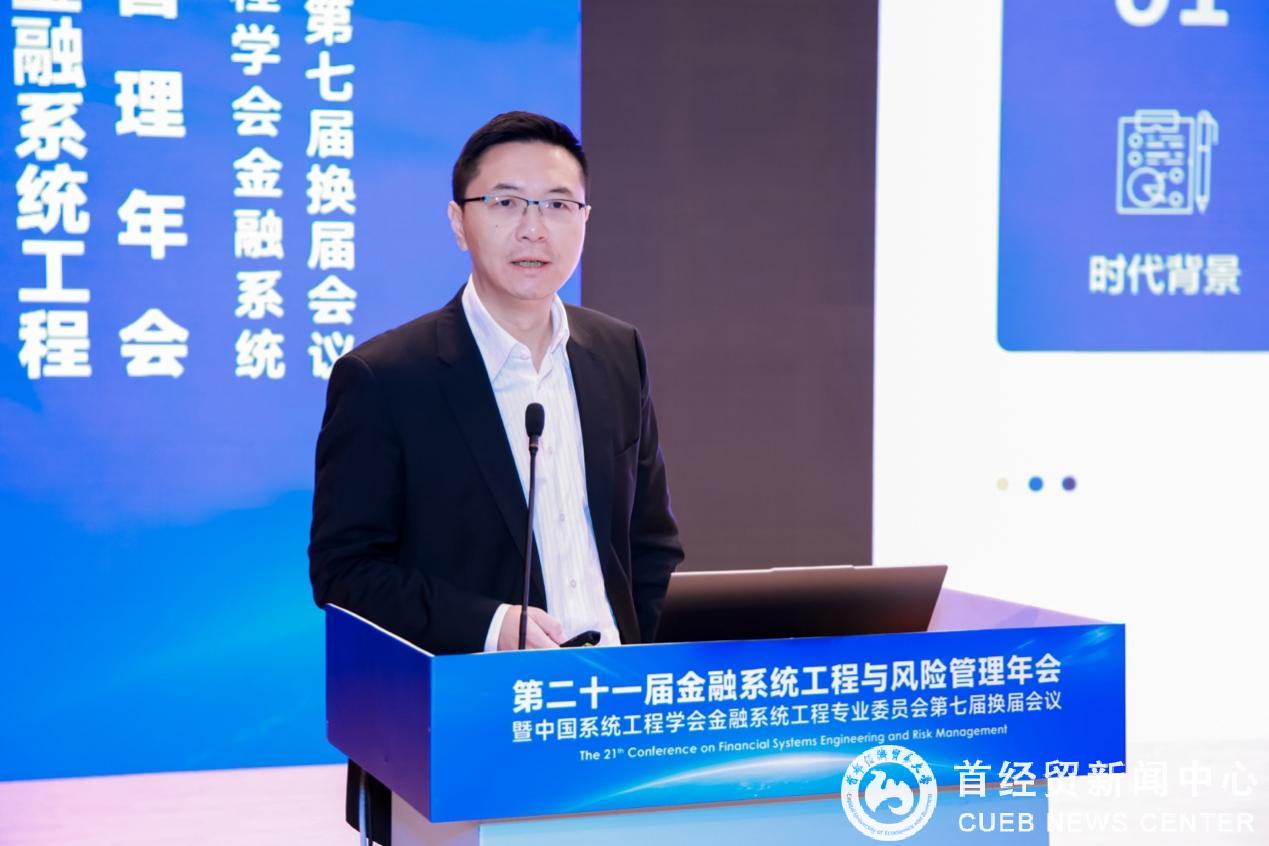
Professor Tian Xuan delivers a keynote speech
Tian Xuan made a representation titled “Financial Services for Technological Innovation”, exploring the modern backdrop of financial studies, current research, its challenges, and future trajectories. He emphasized the rise of “new quality productive forces” as a key driver in the new era, attracting significant interest. He discussed finance’s role in bolstering innovation within technological firms and recommended that future research should leverage proxy variables in a more reasonable way to pinpoint the catalysts and trends in technological innovation.
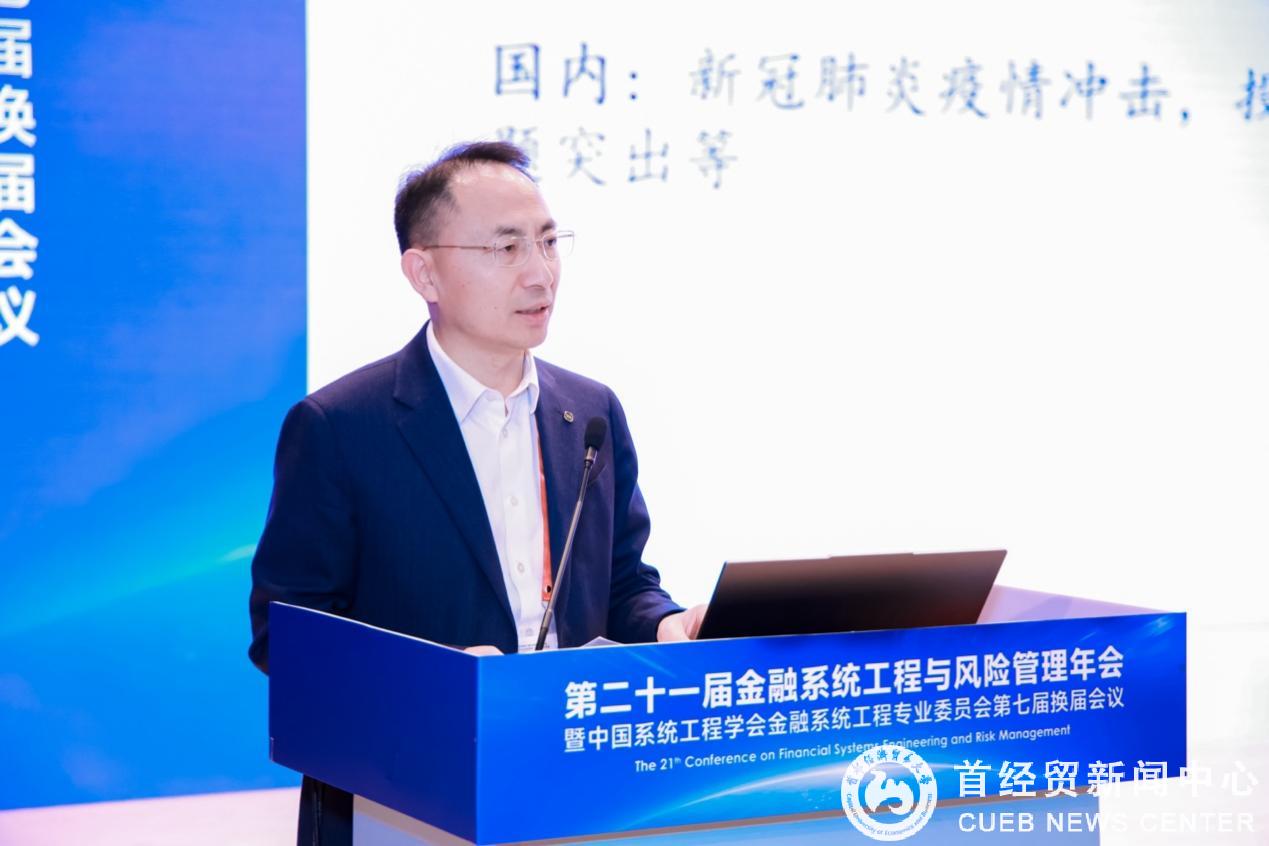
Professor Yin Zhichao delivers a keynote speech.
Yin Zhichao presented “Economic Risks of Chinese Households: Current Status, Comparison, and Empirical Analysis”, highlighting the multifaceted risks confronting Chinese household economy such as macroeconomic volatility, income instability, and consumption risks. He stressed the importance of household risk management for well-being, given the diversity among these microeconomic units. He detailed the origins of household economic risks from four perspectives, including income, consumption, investment, and social security and suggested strategies to foster sustainable and stable household financial health.
The reports were chaired by Professor Zhou Kaiguo, Dean of the School of Finance of CUEB. Yang Xinlei, a senior researcher from RESSET, delivered a report titled “Construction of Academic Applications Based on AI Financial Big Models in the Digital Economy Era”. She delved into the characteristics of data in the digital age, noting that data is vast, high-dimensional, and complex. She also emphasized that the RESSET financial big model platform should be oriented towards scientific research achievements, and build a comprehensive academic research platform that covers macro, meso, and micro perspectives to promote innovation and development in the financial field.
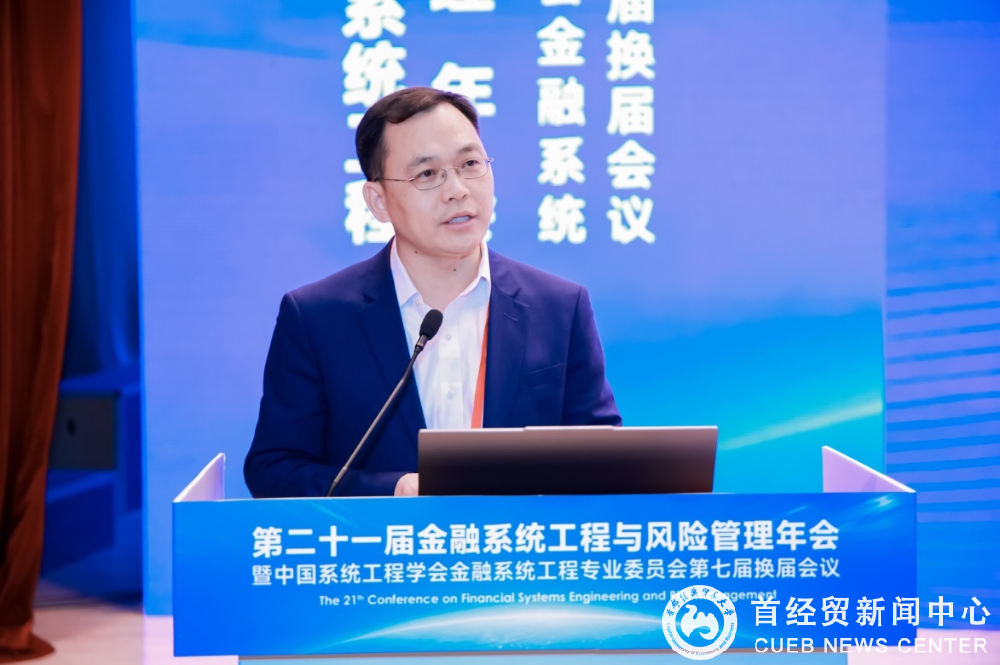
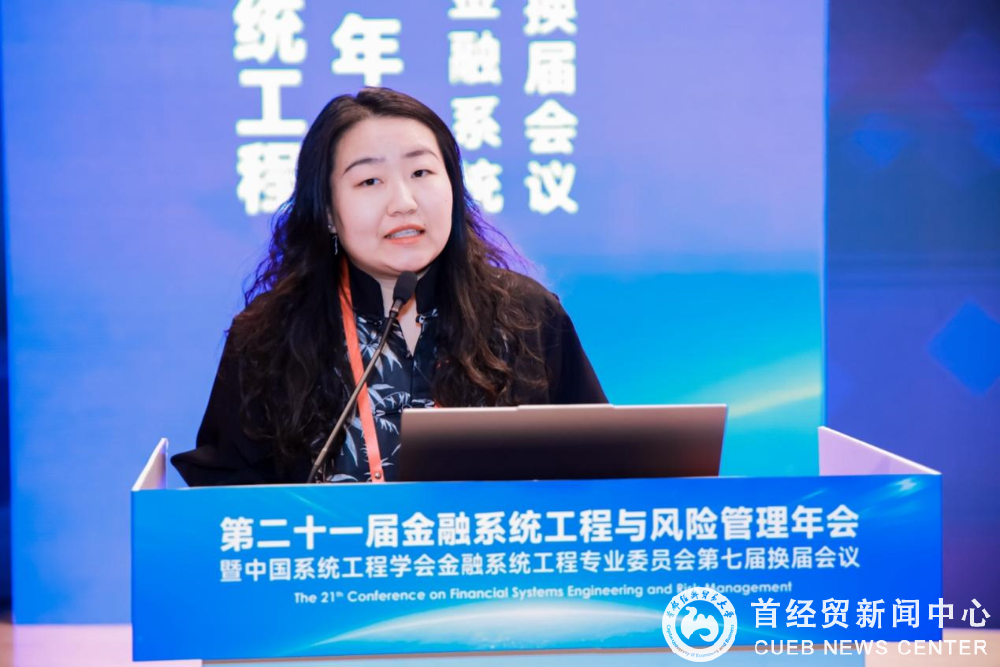
Professor Zhou Kaiguo presides over the reports Researcher Yang Xinlei delivers a report
After the reports, the 7th re-election meeting for the Financial Systems Engineering Committee of the Systems Engineering Society of China concluded at the Zhuoyu Auditorium. Li Lin, Deputy Secretary-General of the Systems Engineering Society of China, chaired the event, and Xiong Xiong, Director of the committee, delivered a report on the 6th Committee’s work. They both discussed the prospects for the future of financial systems engineering.
Xiong Xiong reviewed the committee’s key accomplishments, particularly the establishment of a high-level academic platform and its advancements as a leading think tank. He also discussed the re-election preparations, noting that the committee has optimized its composition by enhancing professional expertise, balancing gender, diversifying age groups, and broadening the range of member institutions, so as to increase the committee’s influence.
In the re-election session, Li Lin presented the voting process. With the involvement of all participants, the conference unanimously confirmed the 7th re-election roster for the Financial Systems Engineering Committee and elected new members. Subsequently, the committee’s new leadership, including the director, deputy director, secretary-general, and deputy secretary-general, were appointed through member voting.
Zhang Wei, the newly elected director of the 7th Financial Systems Engineering Committee of the Systems Engineering Society of China, spoke about the committee’s future focus. He stressed the commitment to advancing the field of financial systems engineering, enhancing academic dialogue, fostering innovative research, and building a high-level think tank to support the financial sector’s stability and risk management. Zhang called on all members to collaborate in driving the integration and growth of financial systems engineering and financial technology.
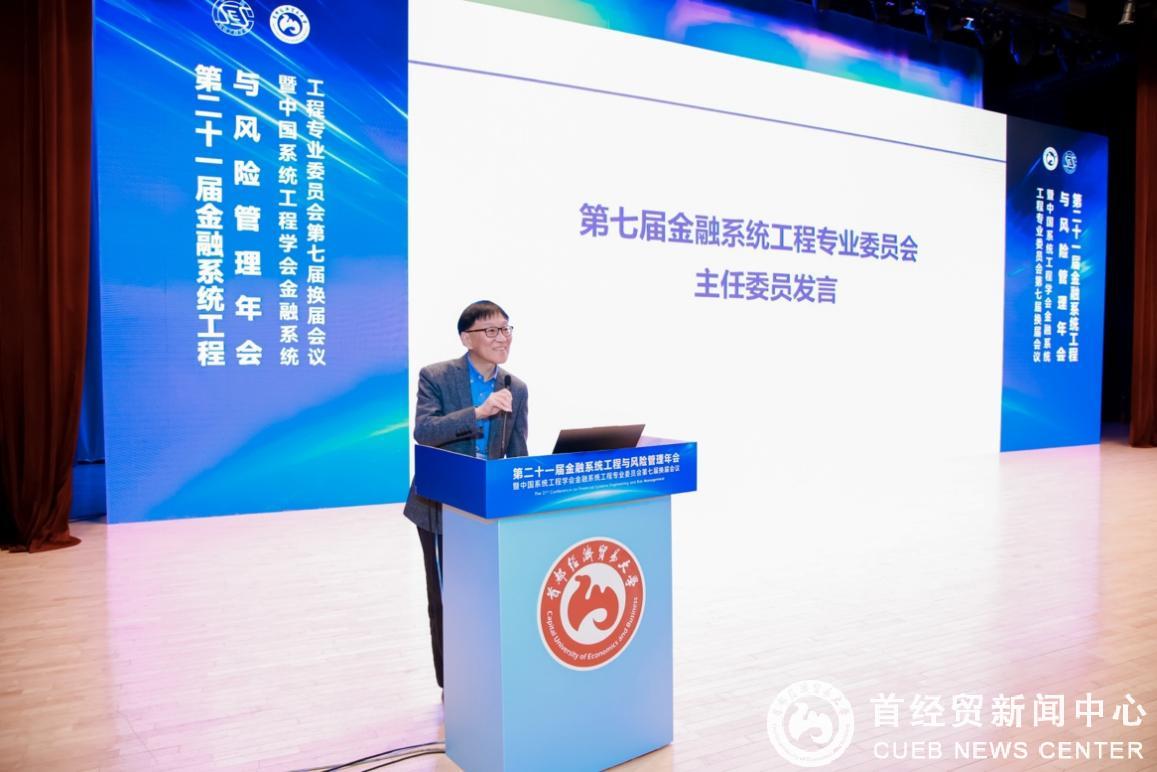
Professor Zhang Wei delivers a speech
The new session indicated that under the new leadership, the Committee will further promote the development and innovation of financial systems engineering and contribute strength to the stable operation and risk management of China’s financial system.
On the afternoon of November 30, 240 reports were shared in 30 sub-forums in an orderly manner in Shensi Building. The topics covered a wide range of areas, including financial engineering, risk management, green finance, digital finance, pension finance, technology and finance, inclusive finance, financial technology, asset pricing, corporate finance, ESG, climate finance, supply chain finance, financial forecasting, law and finance. There was a heated discussion in each sub-forum.
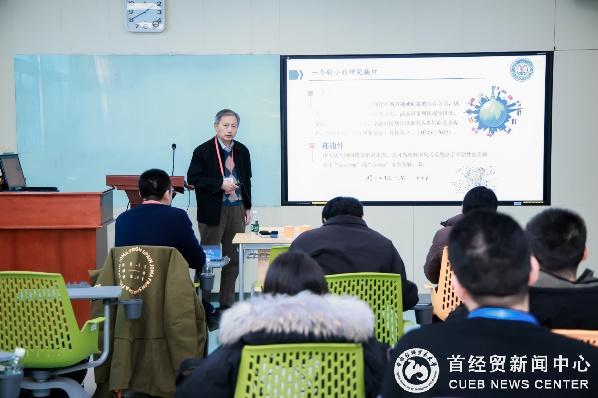
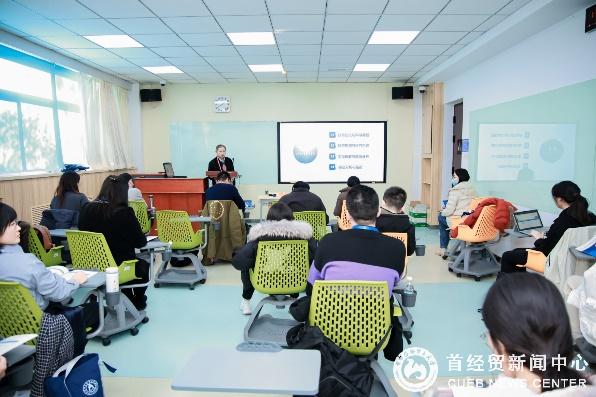
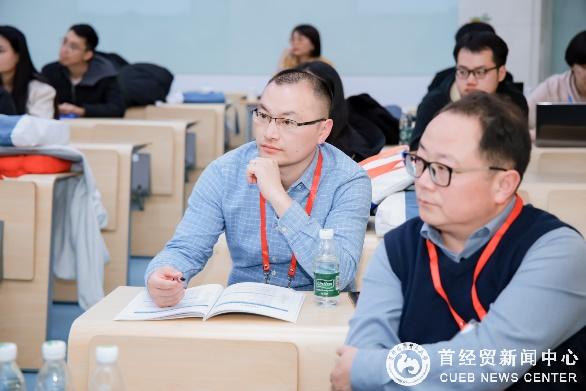
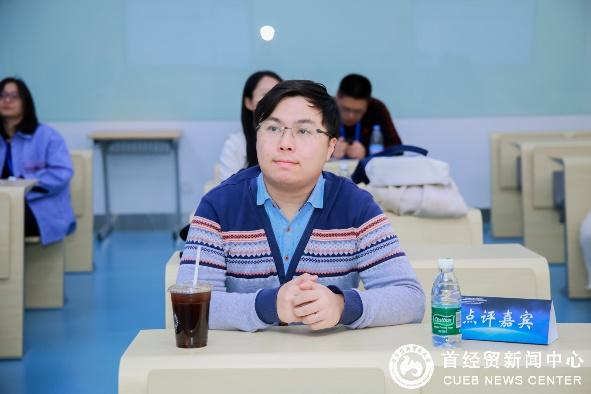
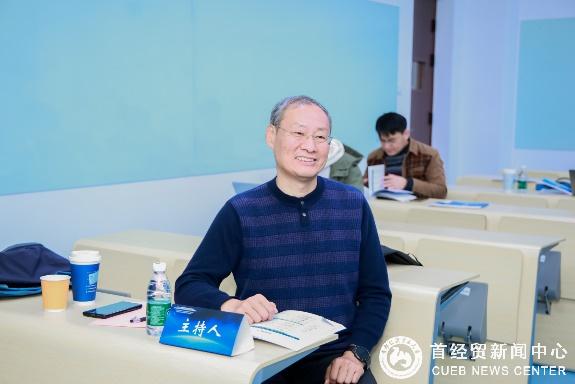
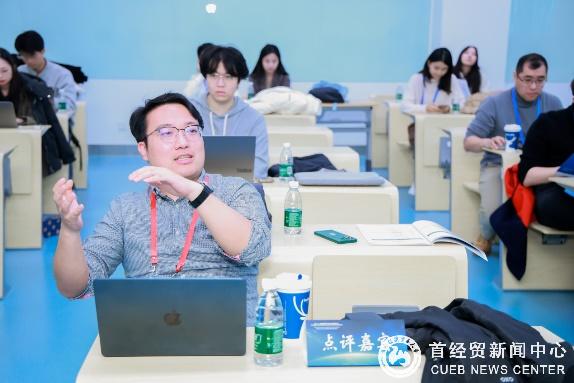
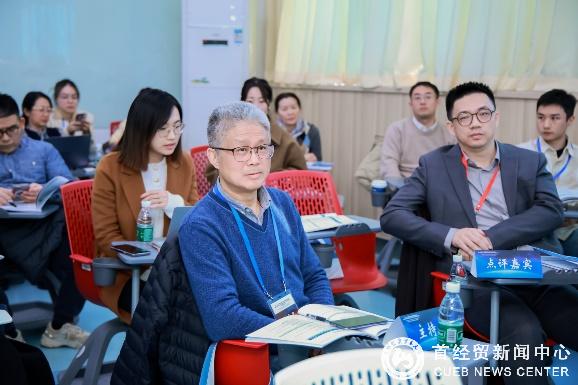
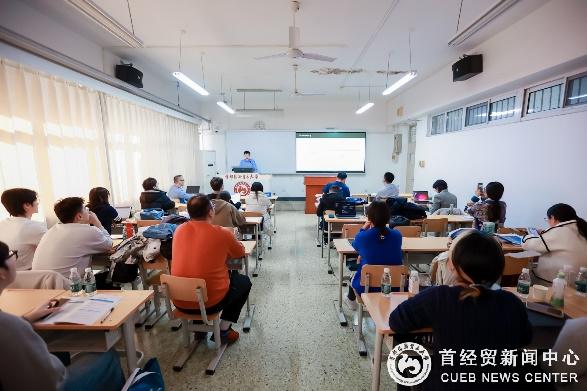
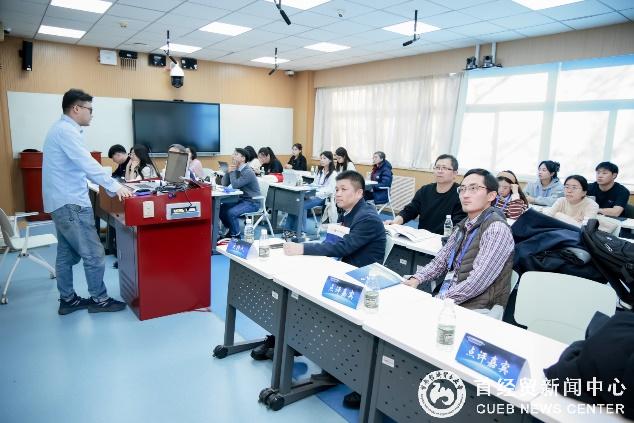
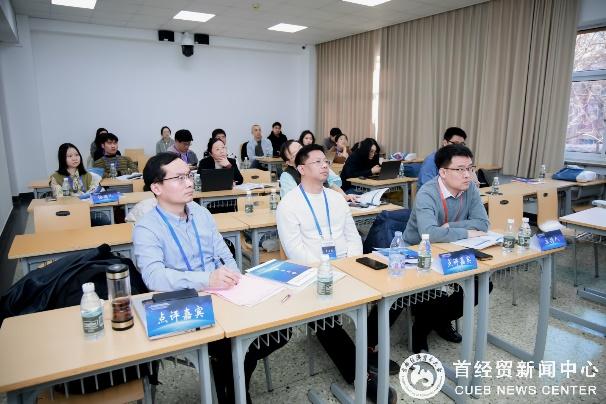
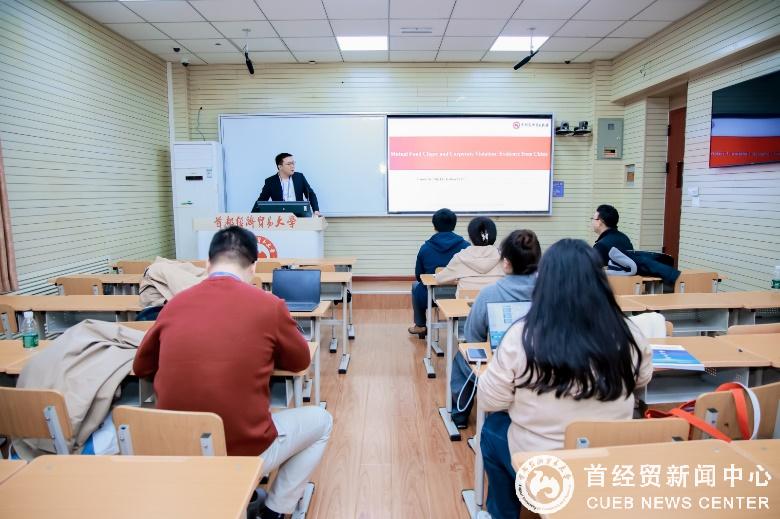
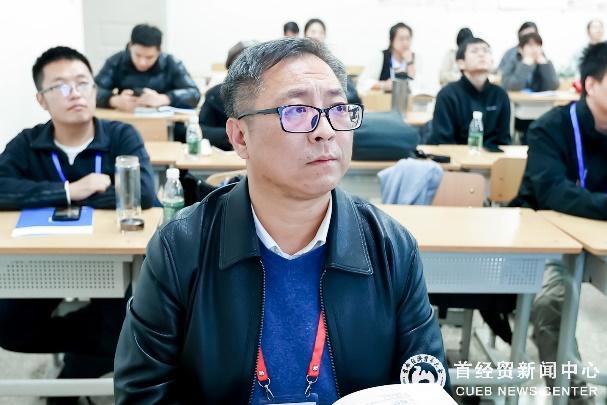
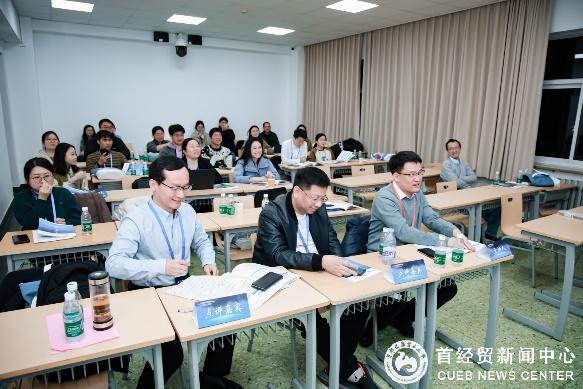
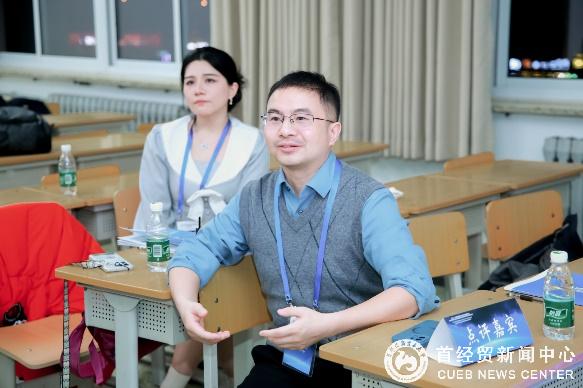
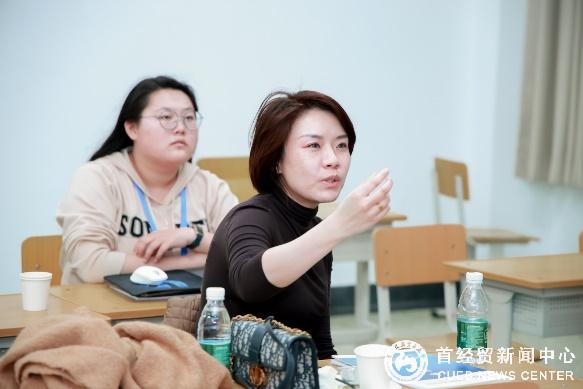
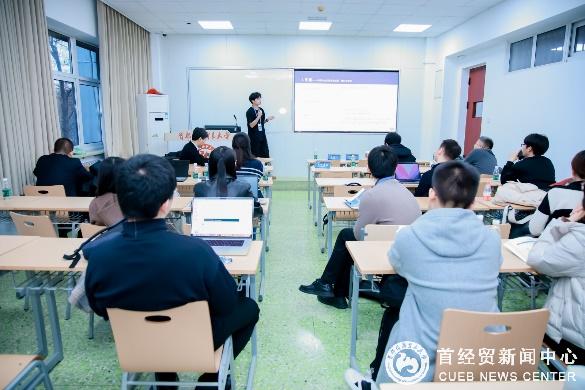
On the morning of December 1, 13 specialized forums, two national key research and development forums, and one young scholar report forum were held in the Conference Rooms of Boyuan Building. 34 experts shared their latest research results.
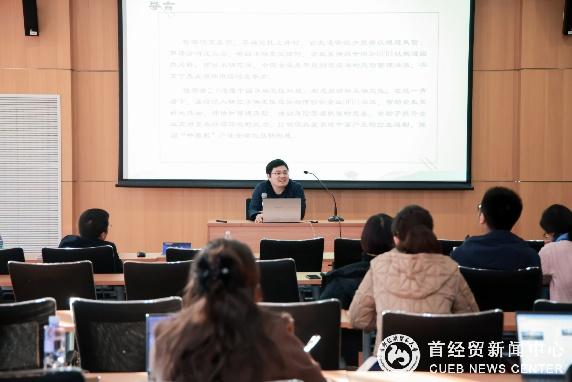
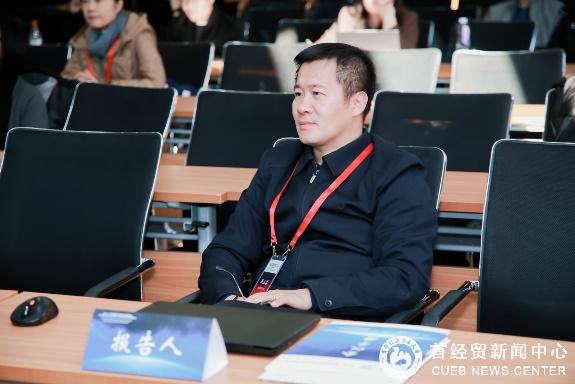
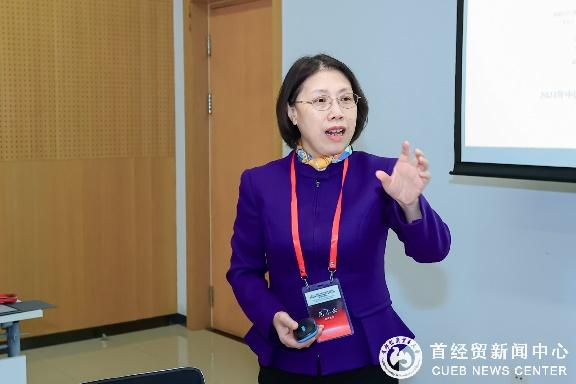
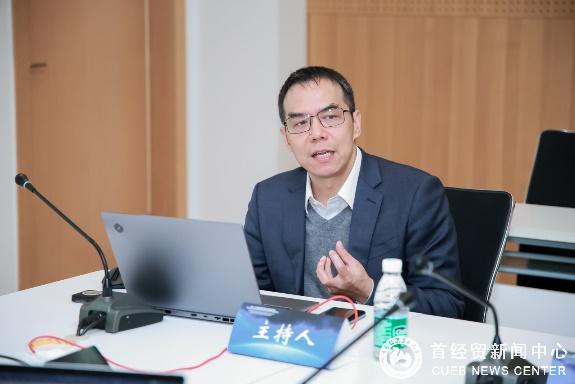
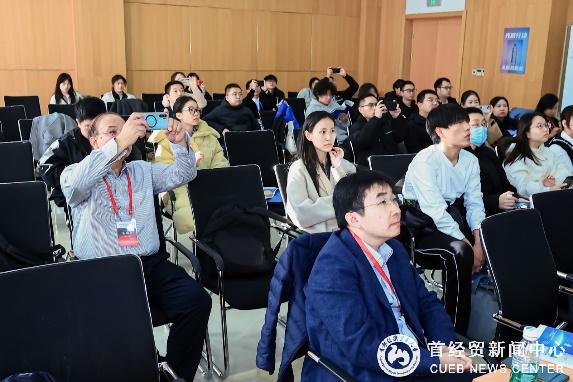
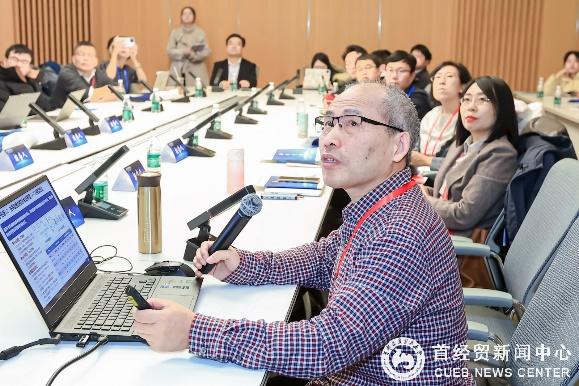
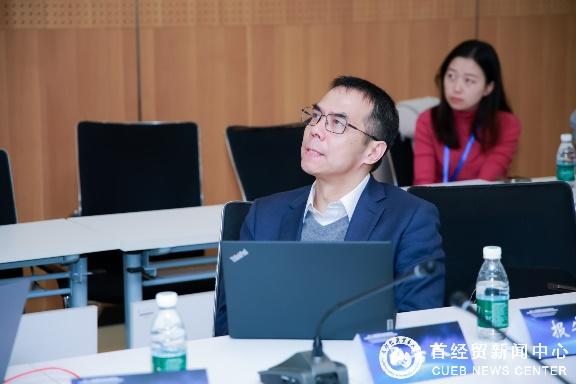
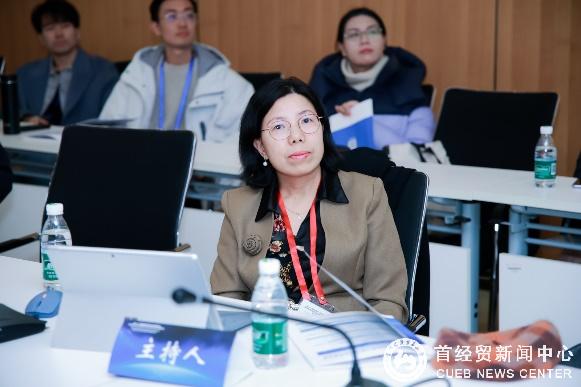

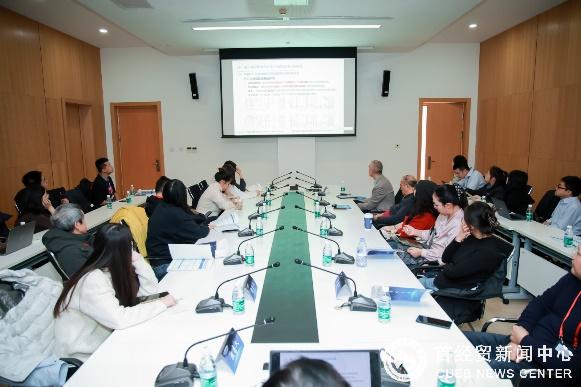
At the noon of December 1, the closing ceremony was held in the Academic Report Hall of Boxue Building. Professor Feng Xu, Secretary-General of the 7th Financial Systems Engineering and Risk Management Committee of the Systems Engineering Society of China, presided over the closing ceremony He announced the next conference will be hosted by Anhui Polytechnic University and selected 28 high-quality papers.
With the concerted efforts of all parties, the conference came to a conclusion. This event not only set up a valuable communication platform for the development of financial systems engineering, but also promoted the exchange of outstanding academic achievements in relevant fields, and won wide acclaim from participants.
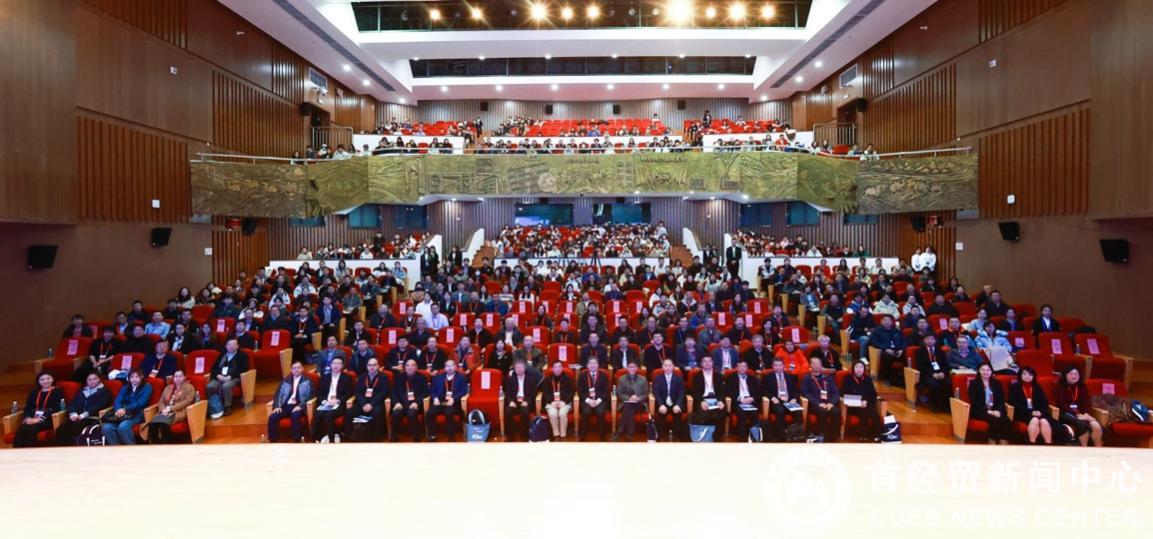
Group Photo
